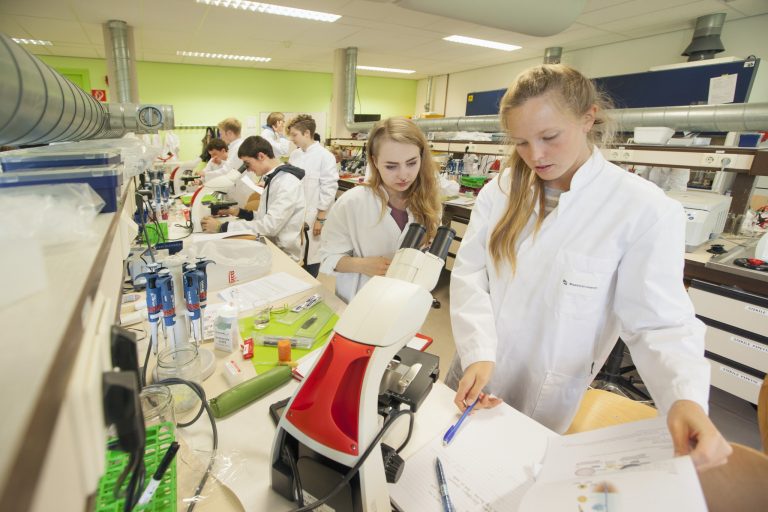
“The social sciences have a critical contribution to make, in helping us understand, imagine, and craft a more sustainable future for all” ~ UN Secretary General Ban Ki-Moon.
In today’s ever-evolving, tech-centric world, we need – and in many respects, must – strive to fully grasp the complexities of the challenges we face ahead in terms of biodiversity, evolution, population genetics, climate change, impacts of pesticide use and so on.
We might ask ourselves: Why? And the short answer is: Sustainability.
As German theoretical physicist Werner Heisenberg said, there’s always been a role for natural sciences in understanding “the interplay between nature and ourselves”. And there’s never been a more important time to study them.

The Maastricht Science Programme (MSP) at Maastricht University (UM) is the ideal programme for students with a natural fascination for science who are keen to look beyond conventional science borders and wish to contribute to the international community.
In keeping with its international outlook, this Bachelor’s programme is taught entirely in English and uses the Liberal Arts and Sciences philosophy, which means students can, with the assistance of an academic advisor, create their own curriculum from a wide range of disciplines, including biology, chemistry and physics. With this open curriculum structure, students are free to focus on one discipline or combine multiple disciplines into a single bachelor degree. This kind of free choice or open curriculum is a new approach to education in the natural sciences.
And it works.
Bianca Lourens of Zambia says: “Studying at Maastricht Science Programme has taught me to think outside the box and explore the different options in life. It opens up a new way of thinking and gives a whole new perspective to life.”
While students can create their own curriculum, various core subjects are required to give them the grounding they require. MSP students are also given access to high-quality research and state-of-the-art laboratories, affording them everything they need to ace their studies. And by the way, these facilities are actually located adjacent to one of Europe’s largest industrial chemical sites; an innovative setting to inspire students in their research and projects.

MSP students are also given plenty of opportunities for social engagement, enabling them to put into practice what they have learned with a four week project at the end of each semester.
This incredible combination of being international, multi-disciplinary and innovative means UM is today considered one of the best young universities in the world.
The QS Top 50 Under 50, ranking the top 50 universities under 50 years old around the world, listed UM in 6th place in 2014, while THE 100 Under 50 universities 2016 by Times Higher Education, placed UM 4th in the world.
Its unique location, diverse student experiences and international flavour are also among other reasons natural science students from around the world are choosing Maastricht Science Programme
Here’s a closer look at what sets it apart:

Location
Maastricht Science Programme is located in the city of Maastricht, in the very southern tip of the Netherlands. It is a lively, vibrant place, thanks to a sizeable population of international students but that’s not the only draw. Quaint cobbled streets, churches, squares, merchant homes and heritage sites dating as far back as the Roman times all lend to the beauty that is Maastricht, a place just oozing with cultural diversity and historic charm. It is also located very much in the heart of Europe, being not far from either Belgium or Germany, with excellent air and rail connections.
International feel
UM has more than 16,000 students, 4,000 staff and 55,000 alumni and is still growing. It is a bilingual (Dutch and English) university and about half of the students and one-third of the staff are non-Dutch.
In keeping with its multi-disciplinary approach, the Maastricht Science Programme also attracts students and staff from all over the world – 80 percent of its students are from outside the Netherlands. This diversity in culture and perspectives is part of what makes the programme so special and enriches the academic experience, creating a truly international classroom.
Spanish student Jordi Ferrer Orri characterizes his MSP experience as a time he spent “surrounded by the best small inspiring international community”. He adds that learning from others had helped deepen his own knowledge.

At MSP, students are encouraged to spend time together both in and outside classroom and they are also given a student-only study and recreational area or “Common Room” that they can use for this.
Student experience
While there is a truly international community at MSP, and courses are taught in English, academic advice and support is provided throughout the programme to ensure the courses remain student-centred.
Personal guidance is offered by means of an academic advisor who helps students make the right curriculum choices based on their interests, ambitions and progress.
MSP also utilizes the educational model known as Problem-Based Learning (PBL). In this way, learning is kept small-scale and personal, or in other words student-centred.
“We place the student in the center and facilitate exceptional personal programmes,” explains Thomas Cleij, Dean of the Maastricht Science Programme.
Keep in touch with Maastricht Science Programme via Facebook, Instagram and YouTube.







